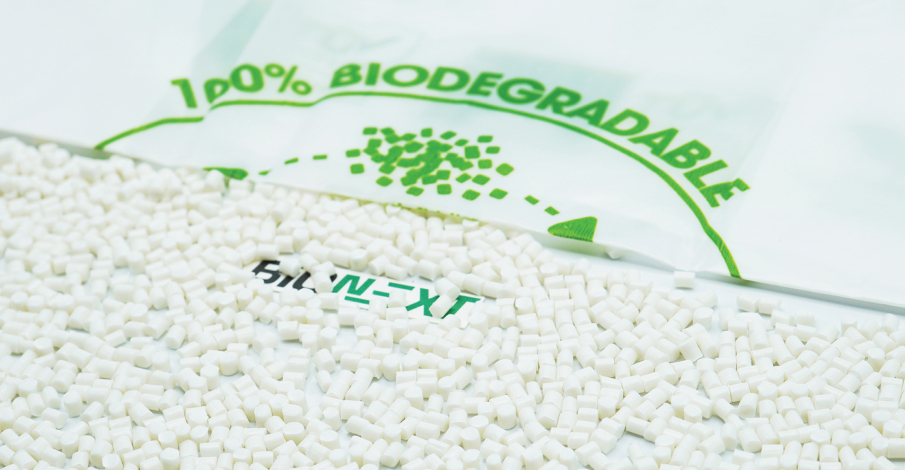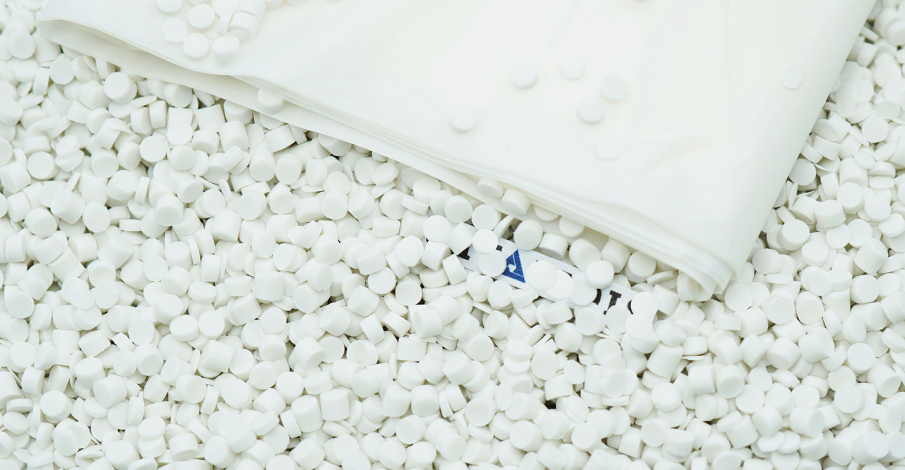In an era where environmental concerns are at the forefront of global discussions, the search for sustainable alternatives to replace conventional plastics has never been more critical. Plastic pollution has reached alarming levels, choking our oceans, harming wildlife, and contributing to climate change. As we grapple with the consequences of our plastic-dependent lifestyles, it's essential to explore innovative solutions that can mitigate this crisis.
One such solution is hemp, a versatile and eco-friendly plant that has garnered attention for its potential to replace plastic in various applications. Hemp, often associated with its controversial cousin, marijuana, is now emerging as a beacon of hope in the quest for more sustainable materials. This blog will delve into the multifaceted world of hemp and examine whether it can truly serve as a viable substitute for plastic. Let’s get started and find out the answer to the question “Can hemp replace plastic?”!
1. What Is Hemp?

Hemp, scientifically known as Cannabis sativa, is a versatile and eco-friendly plant that has garnered increasing attention as a potential alternative to traditional plastics. Unlike its close relative, marijuana, hemp contains negligible levels of the psychoactive compound THC (tetrahydrocannabinol), making it suitable for industrial and sustainable applications.
Hemp has been cultivated for thousands of years for various purposes, including textiles, paper, and food production. What makes hemp particularly intriguing as a replacement for plastic is its fibrous stalks, rich in cellulose – a key building block of plastics. These fibers can be processed to create various biodegradable materials, such as hemp plastic and hemp-based composites.
Moreover, hemp cultivation is relatively environmentally friendly. It requires less water than traditional crops, grows rapidly, and doesn't rely heavily on pesticides or herbicides. Its potential to reduce our dependence on fossil fuels and minimize plastic pollution makes hemp a promising candidate in the quest for sustainable alternatives to plastic.
2. Can Hemp Replace Plastic?

So can hemp replace plastic? The question of whether hemp can replace plastic is a complex one, but it holds significant promise in our pursuit of a sustainable alternative to conventional plastics. Hemp-based materials have the potential to reduce the environmental impact of plastic production and disposal.
Hemp plastics, derived from the plant's cellulose-rich fibers, offer several advantages. They are biodegradable, meaning they break down naturally over time and do not contribute to the long-lasting plastic pollution problem. Additionally, hemp cultivation typically requires fewer resources compared to traditional plastic production, such as petroleum-based plastics, which rely heavily on fossil fuels.
While hemp-based plastics show promise, they are not a one-size-fits-all solution. They may not completely replace all existing plastic applications due to differences in strength, durability, and cost. However, hemp-based materials can be a sustainable choice for specific products like packaging, disposable items, and non-load-bearing components.
In conclusion, hemp has the potential to play a crucial role in reducing our reliance on conventional plastics and mitigating the environmental impact of plastic waste. It may not be a complete replacement, but it is a valuable step toward a more sustainable future.
Extra: Can Hemp Oil Replace Plastic?
Hemp oil, derived from the seeds of the hemp plant, is a valuable resource with numerous applications, but it serves a different role than hemp plastic in the quest for sustainable alternatives.
So can hemp oil replace plastic? Hemp oil alone cannot replace traditional plastic. However, it can play a significant role in the production of bio-based plastics. These bioplastics are created by combining hemp oil with other biodegradable polymers, such as polylactic acid (PLA) or polyhydroxyalkanoates (PHA). This blend enhances the durability and flexibility of the resulting material while retaining its biodegradability.
Hemp oil's benefits extend beyond its use in plastics. It's versatile in various industries, including food, cosmetics, and industrial products like paints and lubricants.
In summary, hemp oil is a valuable component in the development of sustainable bio-plastics, but it cannot directly replace traditional plastics on its own. Its versatility and eco-friendly properties make it a valuable resource in the broader effort to reduce the environmental impact of plastic production and waste.
3. Is Hemp Plastic Biodegradable?

One of the key factors that make hemp plastic an attractive alternative to traditional plastics is its biodegradability. Hemp plastic is indeed biodegradable, which means it can naturally decompose over time when exposed to the environment.
Unlike conventional plastics, which can persist in the environment for hundreds of years, hemp-based plastics break down more rapidly. Microorganisms in the soil and water can enzymatically degrade the cellulose and other organic components in hemp plastic, returning them to their natural constituents without leaving harmful residues.
However, the speed of biodegradation depends on various factors, including environmental conditions, the specific formulation of the hemp plastic, and whether it ends up in a suitable environment for decomposition. In ideal conditions, hemp plastic can decompose within several months to a few years, significantly reducing its environmental impact compared to non-biodegradable plastics.
This biodegradability is a crucial advantage of hemp plastic in the context of sustainability and reducing plastic pollution, making it a promising choice for eco-conscious consumers and industries seeking more environmentally friendly alternatives.
Read more: The pros and cons of hemp bioplastic
4. What Can Hemp Plastic Be Used For?

Hemp plastic, a promising eco-friendly alternative to conventional plastics, finds application across various industries. Its versatility stems from the adaptability of hemp fibers and their integration into plastic formulations. Here are some key areas where hemp plastic is making a significant impact:
- Packaging Materials: Hemp plastic can create durable and biodegradable packaging solutions. From food containers to bags and bottles, it offers an eco-conscious choice that reduces the environmental burden of single-use plastics.
- Automotive Components: Hemp-based composites are gaining traction in the automotive industry. These composites, reinforced with hemp fibers, are lighter than traditional materials, contributing to fuel efficiency, while also being eco-friendly.
- Construction: Hemp plastic is being used in construction materials such as panels and insulation. Its thermal and acoustic properties make it an excellent choice for sustainable building practices.
- Consumer Goods: Hemp plastic is increasingly finding its way into consumer products like toys, furniture, and electronic casings. Its biodegradability and strength are appealing to manufacturers seeking sustainable alternatives.
Hemp plastic's adaptability and eco-friendly nature make it a versatile and sustainable choice in various industries. As we explore its potential further, it becomes increasingly clear that hemp has a pivotal role to play in reducing our reliance on traditional plastics and mitigating the environmental impact of plastic waste.
Based in Vietnam, EuroPlas proudly stands as a leading masterbatch manufacturer with over 15 years of history. Our global footprint spans across 85 countries, where we've consistently delivered innovative plastic solutions. We owe our success to a blend of expertise, state-of-the-art facilities, and an unswerving dedication to a sustainable future.
Tailoring Excellence to Your Industry: At EuroPlas, we leverage cutting-edge technology and unique natural resources to customize products for various industries. Whether you seek cost-effective solutions or environmentally conscious alternatives, EuroPlas is your partner in the ever-evolving landscape of plastics.

EuroPlas takes a bold stride towards a more eco-conscious future with the introduction of our bioplastic compound. Crafted from natural starch and biodegradable additives, this groundbreaking solution allows plastic items to biodegrade within a year while maintaining peak performance. From food packaging to agricultural films, our bioplastic compound underscores our commitment to environmental sustainability.

Our dedication to sustainability extends further with our bio filler, a green alternative that renders plastic items biodegradable within a year. Comprising natural starch and biodegradable additives, this innovative product finds its purpose in food packaging, disposable tableware, and agricultural films, contributing to a greener future without compromising functionality.
At EuroPlas, our diverse product range reflects our unwavering commitment to crafting a more sustainable and innovative future. With a focus on quality, performance, and environmental consciousness, we continue to make a profound impact on the global plastic industry.
Thank you for considering EuroPlas as your partner for cutting-edge plastic solutions. Our dedicated team is poised to provide expert guidance and support to meet your unique requirements. Whether you have inquiries about our products, need customized solutions, or want to collaborate on sustainable initiatives, we are here to assist you—reach out to us today!